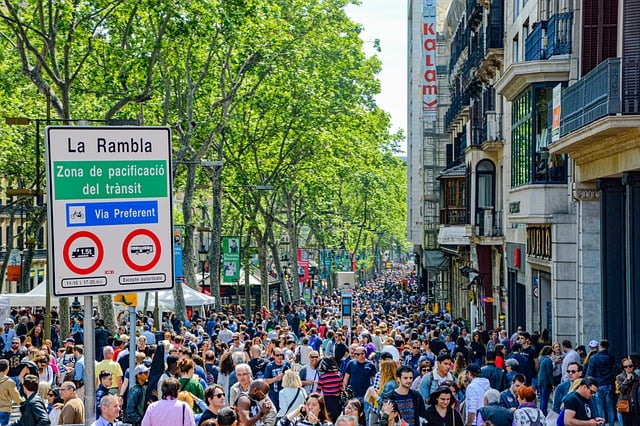For some Brits in Spain, it’s a no-brainer: Spain has been their home for years and they will continue being residents here after Brexit.
For others who hadn’t previously registered, the decision hasn’t proved as easy, now that they have health cover and income requirements to meet for residency and the need to commit to one country has forced them to think hard about the future during these uncertain times.
And then there are the Brits who have decided to move to Spain for the first time as a result of Brexit, hoping that a life here as EU residents will be better than what awaits them in the UK.
READ MORE:
- Brexit: How much money will Britons in Spain need to be legally resident?
- What foreigners should be aware of before becoming residents in Spain
There are these scenarios and many more being played out currently, but is the balance tilting in favour of more residency registrations or cancellations?
How many are registering?
According to the website of Spain’s Secretary of State for Migration, the number of UK citizens with Spanish residence permits increased by 8.2 percent from June 2018 to June 2019.
The rate then increased a further 5.8 percent from June 2019 to June 2020, a rise of 19,977 British residents.
“More than 50,000 British citizens have applied for the new TIE card,” Hana Jalloul stated in a video message on December 23rd.
No official national body has published more figures since the summer, but regional and provincial authorities have.
Málaga’s government for example published data from their migration offices on November 11th 2020 which reported that 2,692 UK citizens had applied for residency there since July 6th, a marked upward trend.
Similarly, by mid- November, a further 3,000 Britons on the Balearic island of Mallorca had received their TIE card since July 7th, the day after the residency document’s launch. That’s out of a total of 5,000 applications, with 60 slots being made available daily over the five-month period.
In neighbouring Menorca, which only has a population of 96,000 (4,000 of whom are British residents), a further 300 UK citizens have applied for residency since the summer.
How many have left?
This information is harder to come by in official sources and would rely on the premise that all Britons leaving Spain for good before Brexit were cancelling their green residency documents, a document which doesn’t expire but will no doubt eventually be replaced by the TIE, which does.
That means that until then it may be hard to get an accurate idea of how many Britons have left over the course of the last year and since the Brexit vote, as it would depend on factors such as whether it’s residency documents or padrón registration at town halls which is used.
However, a recent article in Spain’s ABC newspaper titled “I’m going back: 50,000 Britons return to the UK due to Brexit” argued there has been a downward trend in UK residents in Spain in recent years.
Comparing National Statistics Institute (INE) data of Brits registered as residents in Spain from 2014 (two years before Brexit vote) and from 2019, the numbers did drop from 300,000 to around 250,000, although they had already gone down to 256,000 by 2016.
Did Brexit really spur thousands of Brits to stop being residents in Spain or could other measures such as the asset declaration law that was passed by the Spanish government in 2013 have had a bigger impact?
How many Brits are now registered as residents in Spain?
Spain’s Secretary of State for Migration reported that as of June 30th 2020, there were 366,498 UK citizens with a “certificado de registro” or “tarjeta de residencia” (both residency documents) in Spain, the third biggest foreign population group in the country after Romanians and Moroccans.

Their average age is far higher than for most other foreigners in Spain – 53.9 – and there’s an almost 50/50 split between men and women.
Alicante (86,407 UK residents), Málaga (63,571) and the Balearic Islands (29,532) hold the highest number of British residents in Spain.
However, the latest data from Spain’s National Statistics Institute states that there are 250,392 Brits registered in Spain, more than 100,000 fewer than the State for Migration’s figures.
Although INE are yet to publish any data from the whole of 2020, and the evidence suggests the numbers of Brits will be higher, it’s the fact that INE uses primarily local census information from the town halls (padrón address registrations, birth, deaths etc) rather than migration documents that could account for the stark difference.
READ ALSO: El Padrón: Your need-to-know guide about registering with the town hall
The drop in recent years of Brits registered as having their home address in towns and cities in Spain could have been also a result of their unwillingness to fill in asset declarations, or as a result of missing the deadline, or other fiscal and other matters, rather than solely because of Brexit.
Many took themselves off the padrón but carried on living in Spain.
Come January 1st 2021, Brits here will have to stay above the radar as third-country nationals in all circumstances, so only then will we get a true picture of how many have chosen to make or keep Spain as their main home.



 Please whitelist us to continue reading.
Please whitelist us to continue reading.
Member comments